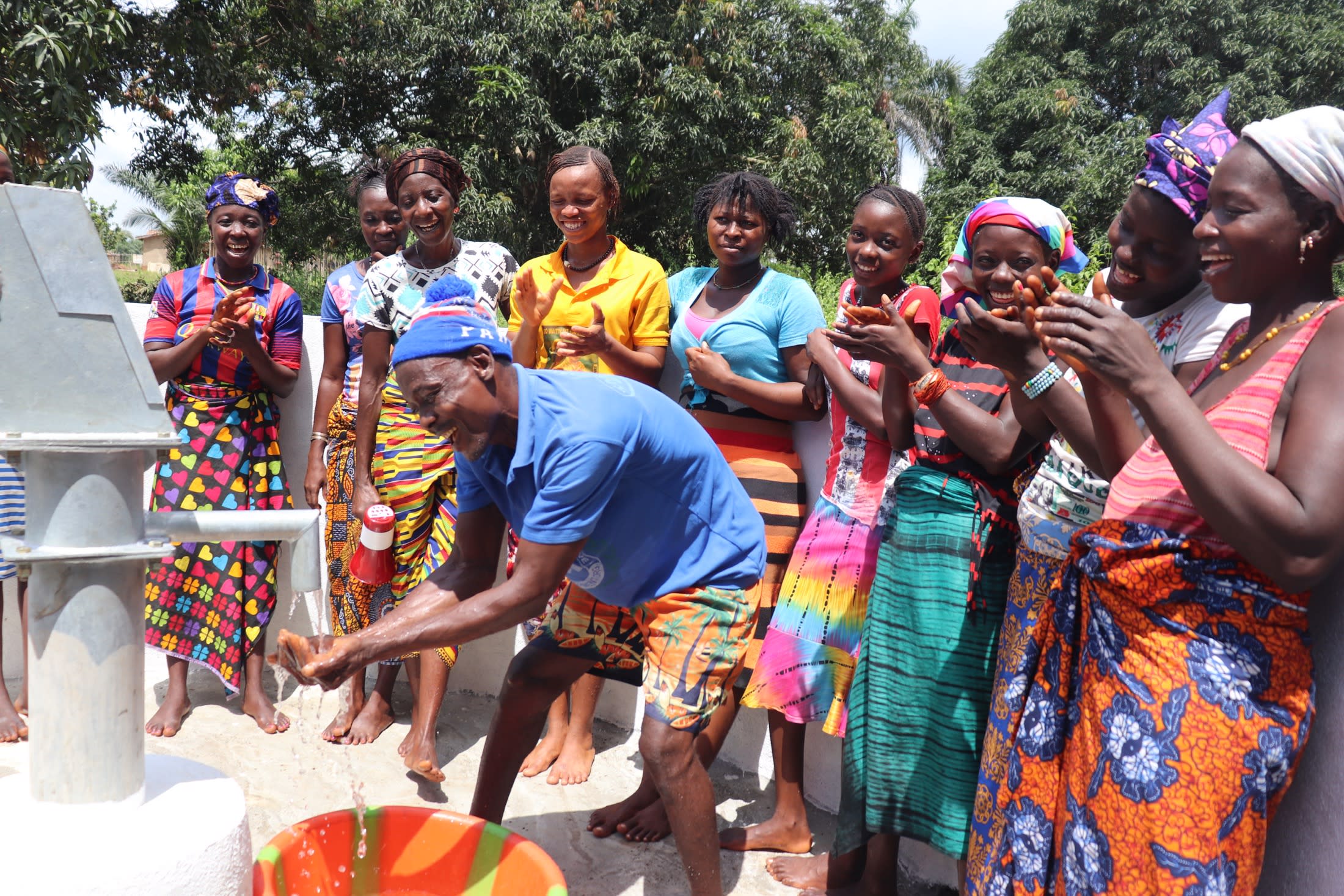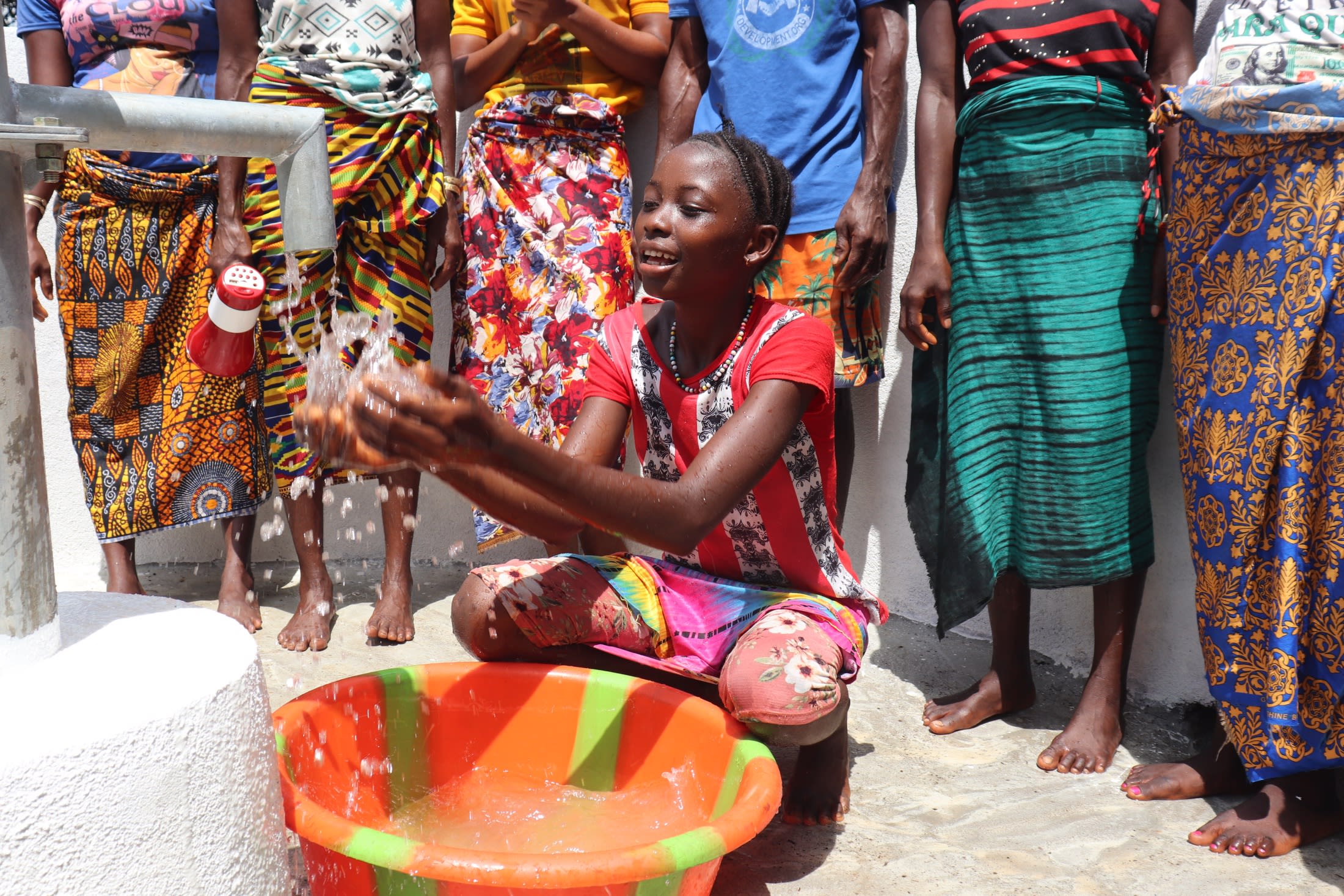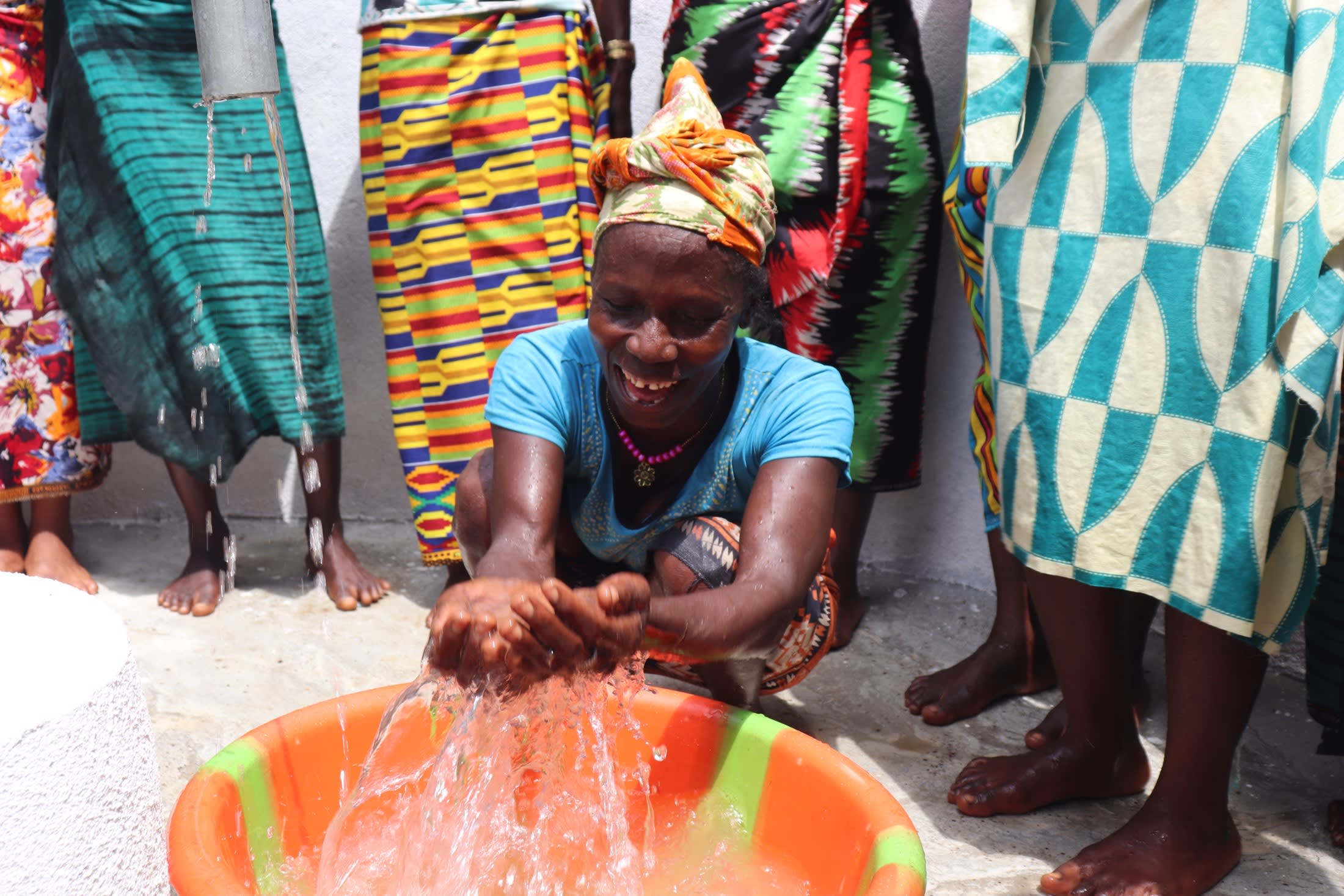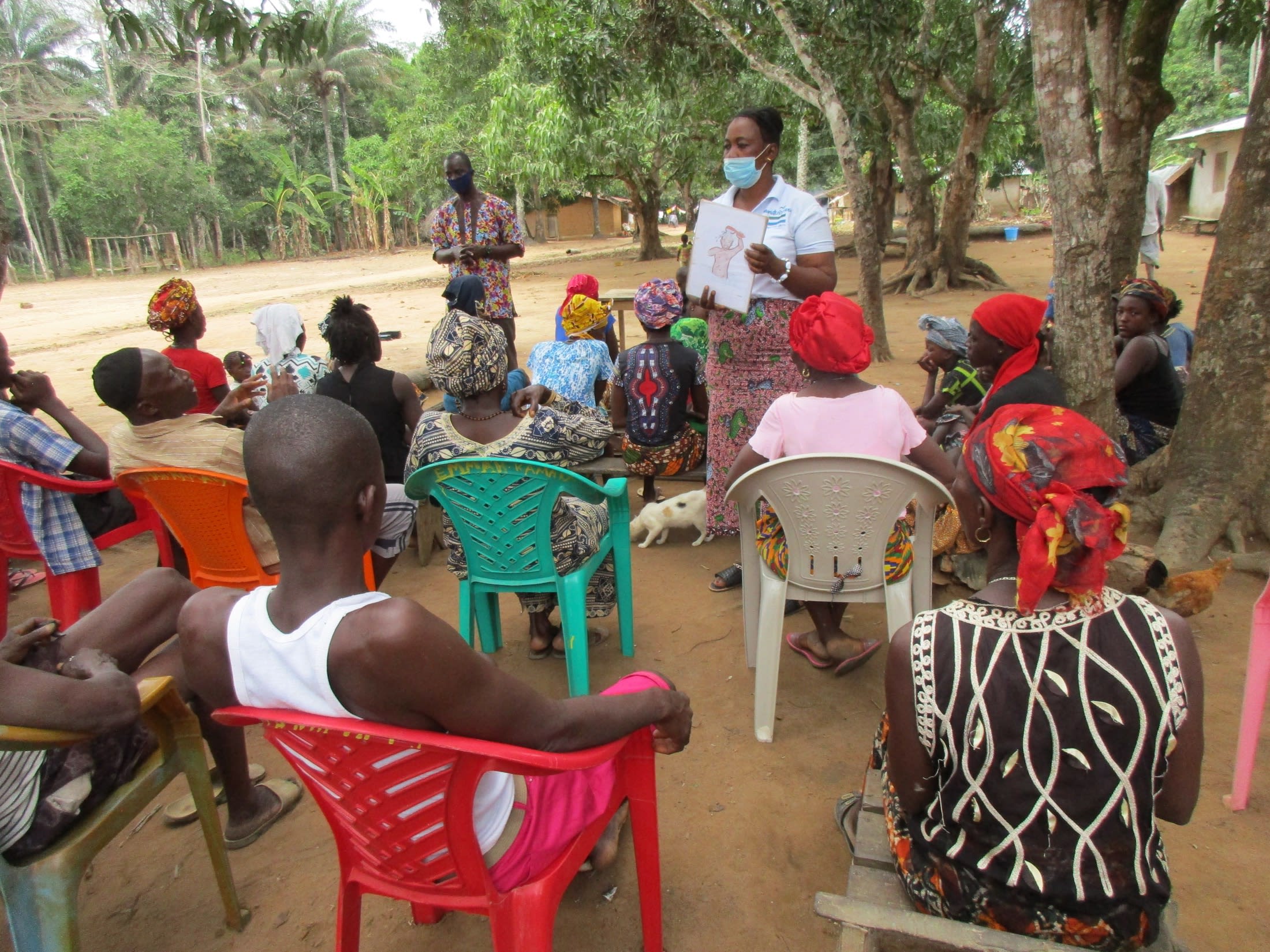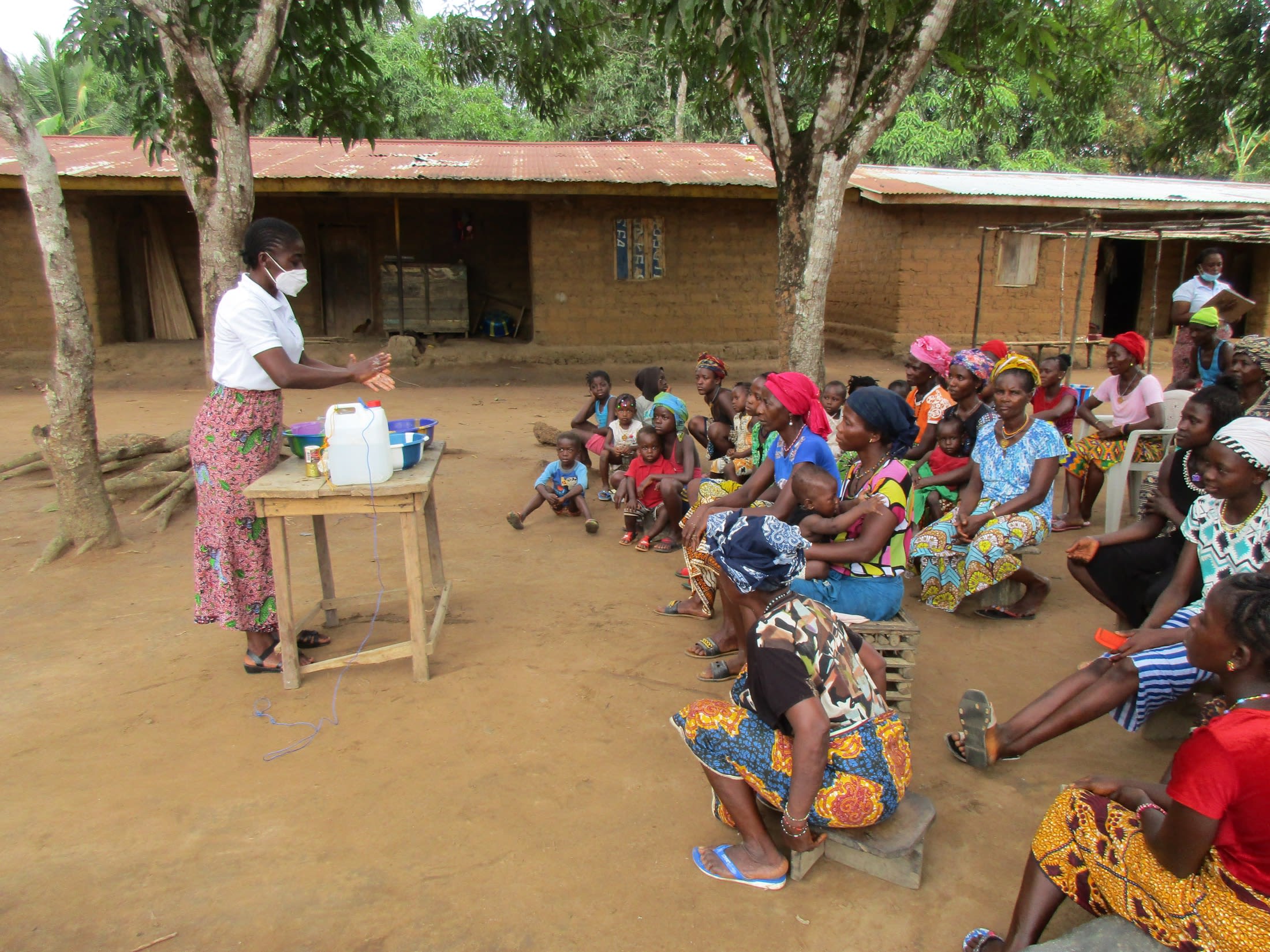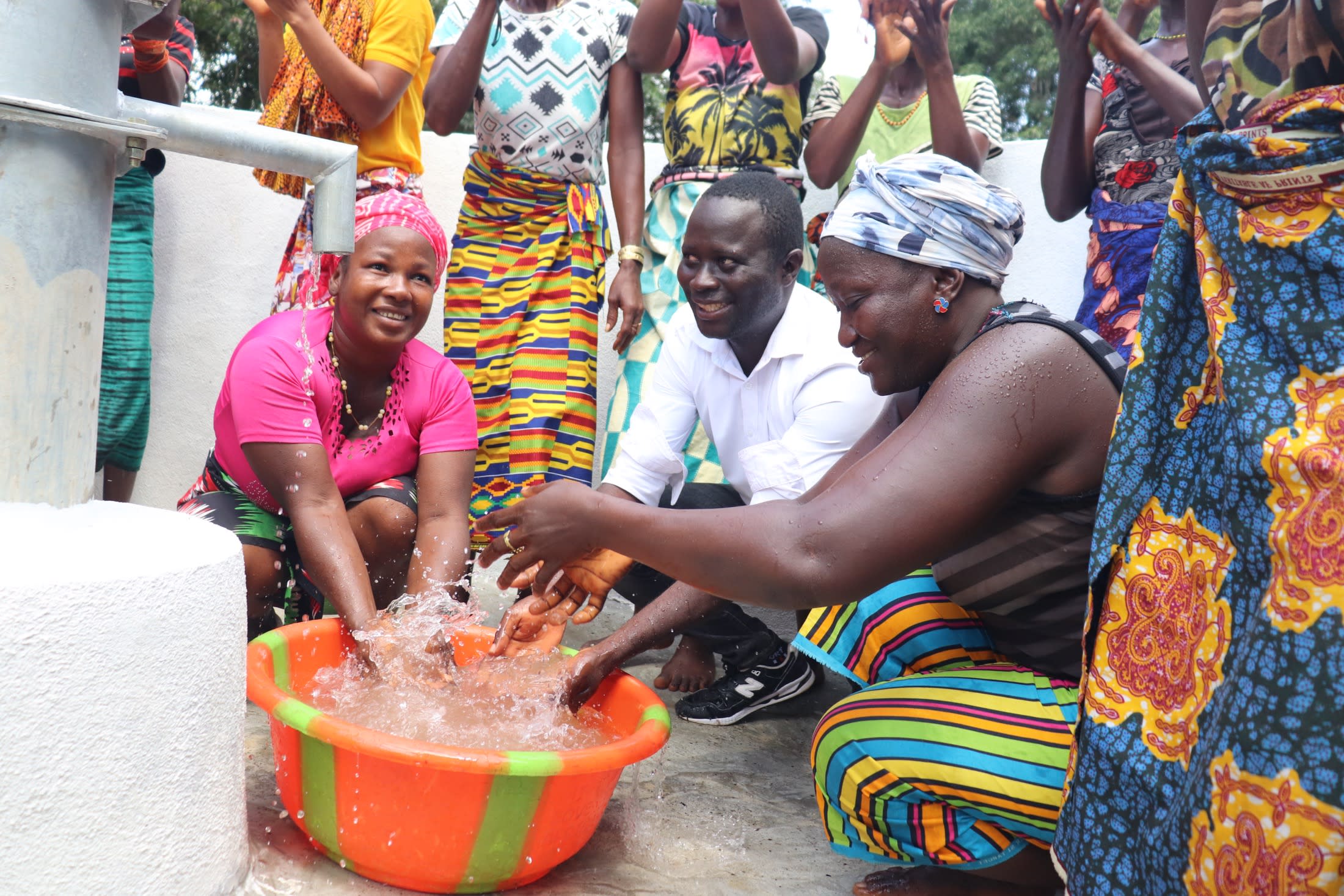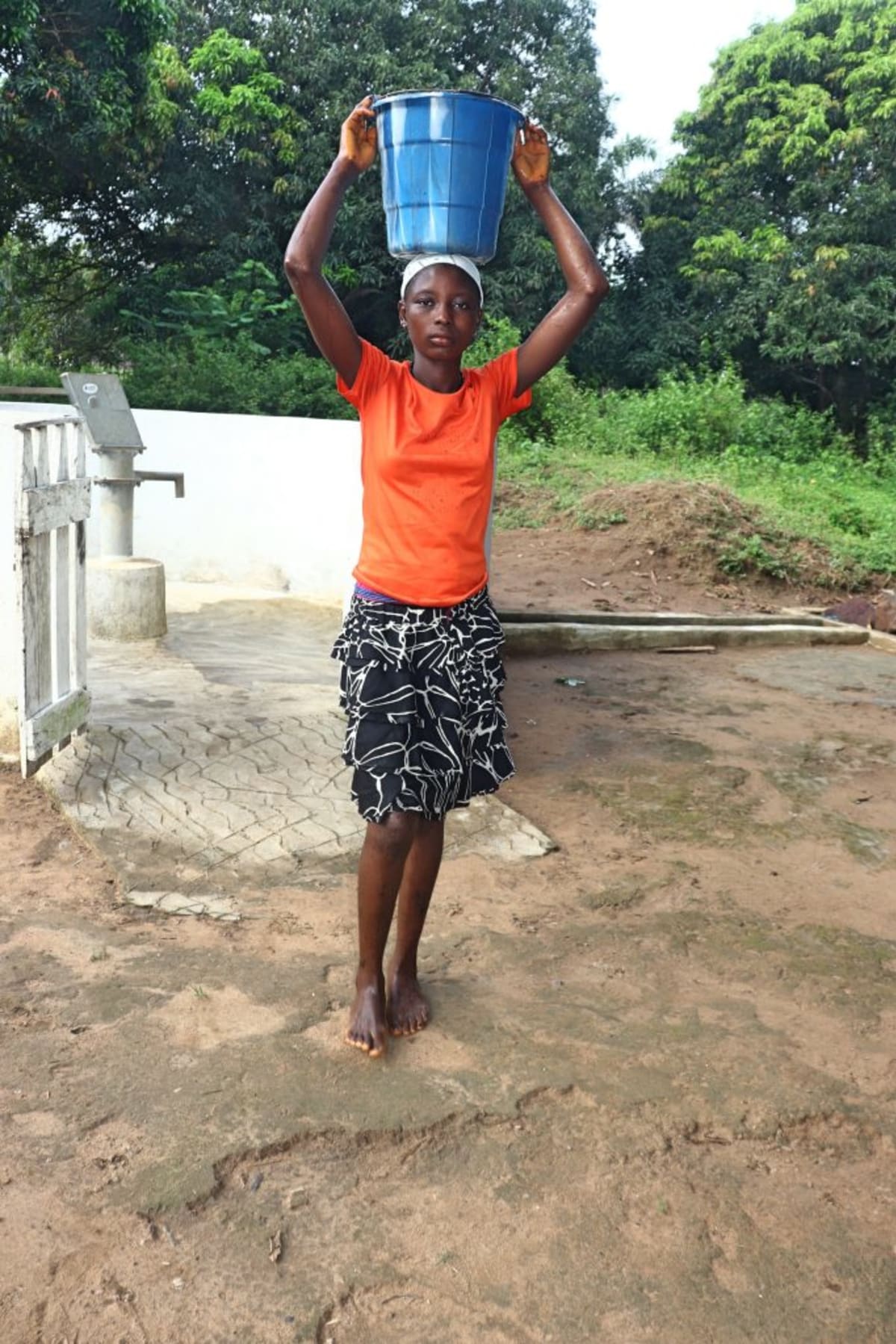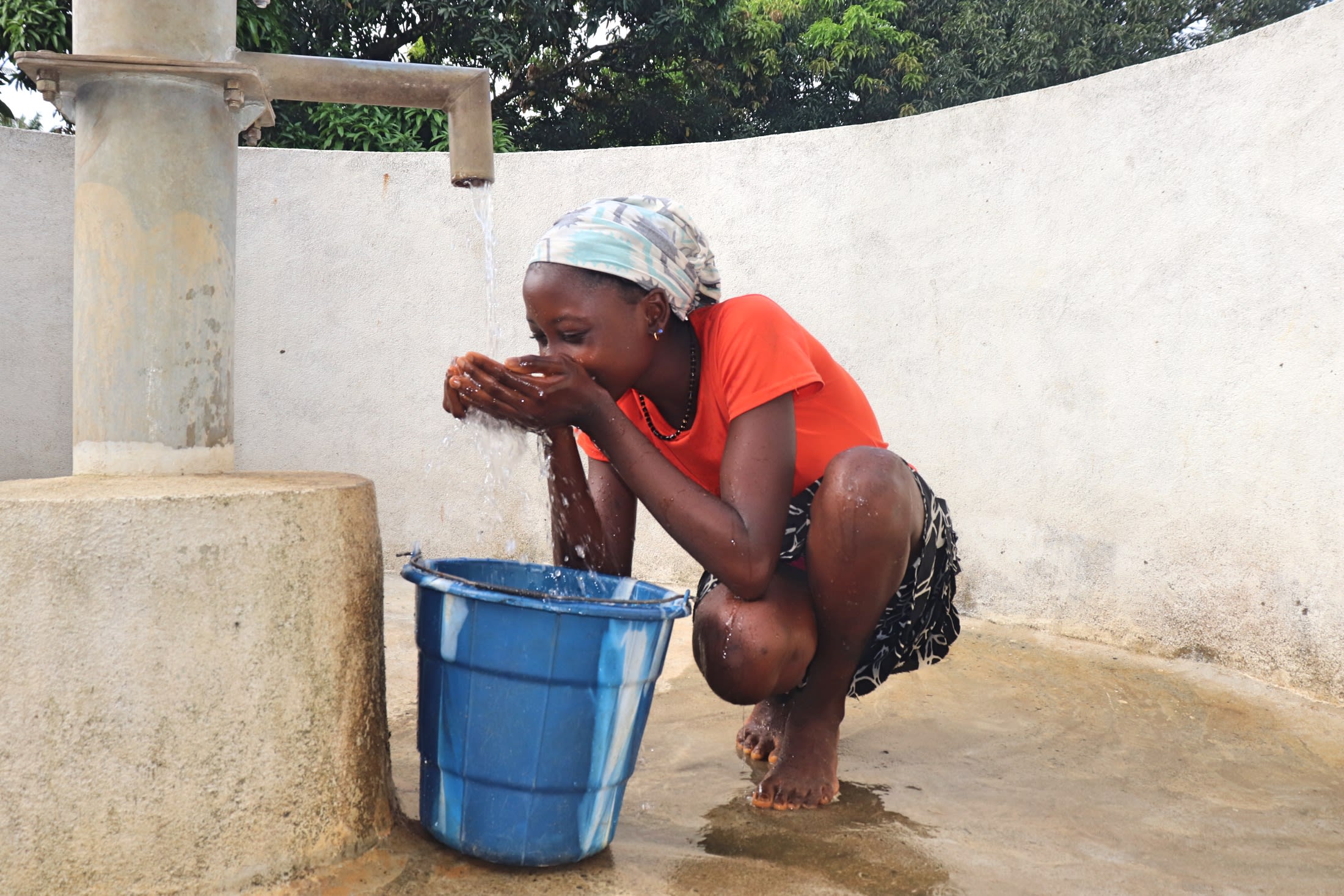In the 1990s, during Sierra Leone's civil war, Masheka’s well was vandalized and it hasn't worked since. To remedy this, the 237 community members elected to dig their own well in the local swamp. This well is unprotected, exposing all Masheka's people to water-related diseases. And during the dry season, the water table lowers, so the well's water becomes scarce.

To supplement the well's unreliable water, community members collect rainwater when it is available, which is only a few months each year. The already-meager rainwater is precious, so it's stored and reserved for the heads of households and special guests. For cooking, cleaning, farmwork, food processing, bathing, and everything else, Masheka's residents head to the swamp.
"The worst time of year for me is in April when the swamp cannot produce enough water," said 50-year-old farmer Baba Bangura. "Whenever it is that time of year, I get worried. I need water to process [my] rice and palm oil. It is also the time of year when palm oil is [in] large demand. I watch in awe as my palm kernels rot because they cannot be processed due to the lack of water. Family after family are being greatly affected by the lack of water in the community to the point that it is reducing their earning potential."

And although Baba is thankful for the water he is able to get, the swamp water is contaminated. Worms, frogs, tadpoles, and fish swim in the water accompanied by decaying leaves, twigs, and grass. And because it's much more convenient to do so where water is near, people also do laundry and bathe beside the hand-dug swamp well.
While contamination is the swamp well's most pressing problem, it is far from the only issue. The path to the swamp well is long and treacherous, exposing water-fetchers to snakes, spiders, scorpions, and more.
"Early in the morning, the chicken [crowing] is my sign to get up and head out to fetch water," said 17-year-old Yaya K. "I carry a flashlight with me to see where I am going to avoid [stubbing] my toes. It takes 30 to 40 minutes to make a trip to the swamp and back. It is not walking on a plain surface but walking on a rough footpath, with hanging branches of thorns and [a] steep hill."

"All children go through the same problems as me, with no complaining to be heard. Parents expect us to make sure there is water in the house all time during the day."
When there isn't enough water to go around, the amount of buckets per family is rationed, making proper hygiene and sanitation practices ever more difficult to observe.
"My farm clothes are laundered [only] once a week, smelling of dried up sweat and dirt," Baba said. "Year after year, it is getting more and more difficult to get sufficient water for our basic needs. It has been a long time since anyone has been to our community to offer such help. I am hopeful and praying for this to come to pass."
What we can do:
New Well
Where we will be drilling is centrally located and will relieve many people of the long journey to fetch water and the challenge of accessing clean water.
Our team will drive over the LS200 mud rotary drill rig and set up camp for a couple of nights. Once the well is drilled to a sufficient water column, it will be cased, developed, and then tested. If these tests are positive, our mechanics will install a new India Mark II pump.
By drilling this borehole, TKKK and the surrounding community will be provided with plenty of accessible, clean drinking water.
Training
There will be hygiene and sanitation training sessions offered for three days in a row.
Community members will learn how to make a hands-free handwashing station called the "tippy-tap." We will use these tippy taps for handwashing demonstrations and will also teach about other tools like dish racks and the importance of properly penning in animals. We will highlight the need to keep restrooms clean, among many other topics.
This training will also strengthen a water user committee that will manage and maintain this new well. They will enforce proper behavior and report to us whenever they need our help in solving a serious problem, like a pump breakdown.

 Borehole Well and Hand Pump
Borehole Well and Hand Pump
 Rehabilitation Project
Rehabilitation Project










